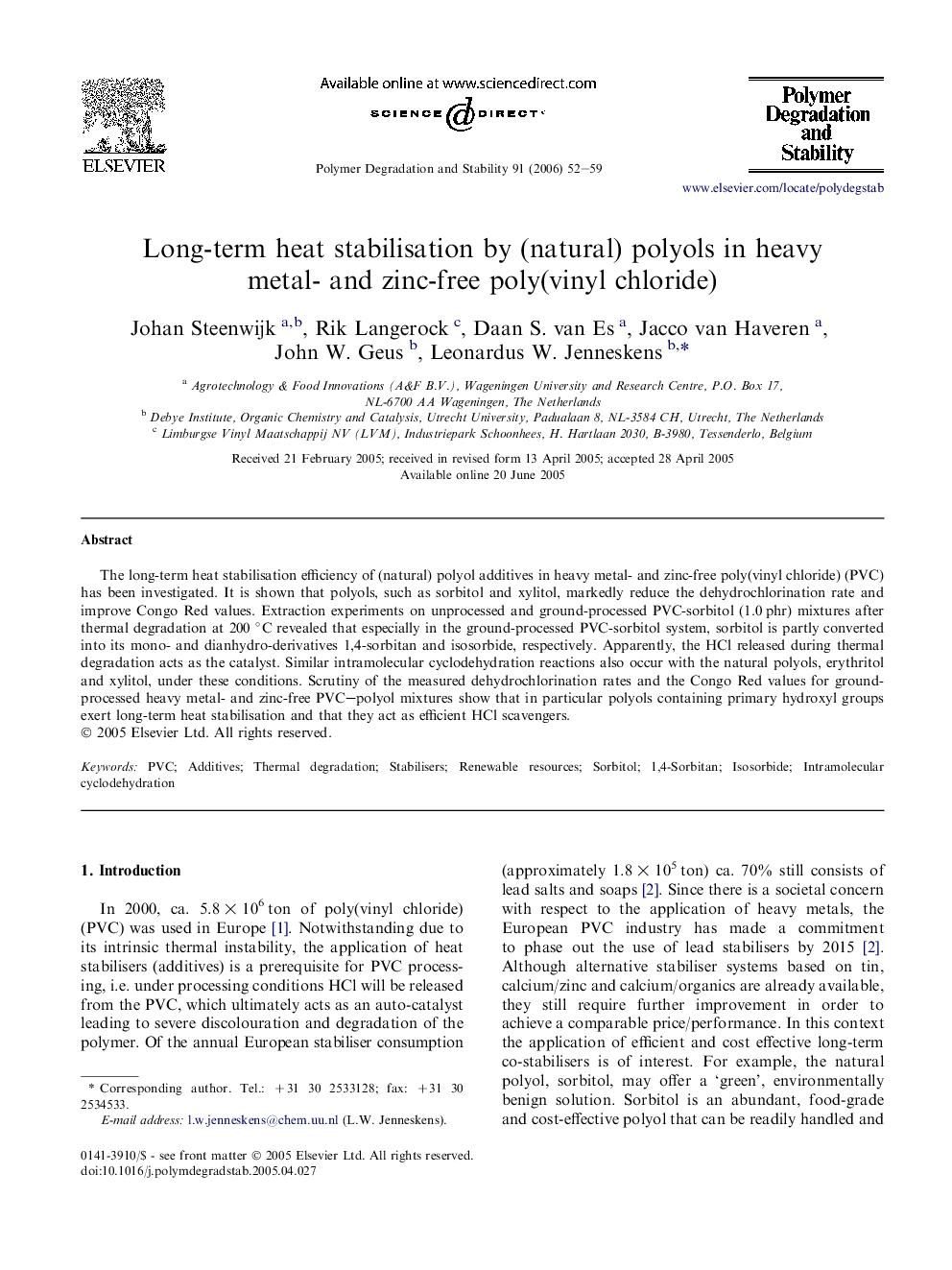| Article ID | Journal | Published Year | Pages | File Type |
|---|---|---|---|---|
| 5205117 | Polymer Degradation and Stability | 2006 | 8 Pages |
Abstract
The long-term heat stabilisation efficiency of (natural) polyol additives in heavy metal- and zinc-free poly(vinyl chloride) (PVC) has been investigated. It is shown that polyols, such as sorbitol and xylitol, markedly reduce the dehydrochlorination rate and improve Congo Red values. Extraction experiments on unprocessed and ground-processed PVC-sorbitol (1.0 phr) mixtures after thermal degradation at 200 °C revealed that especially in the ground-processed PVC-sorbitol system, sorbitol is partly converted into its mono- and dianhydro-derivatives 1,4-sorbitan and isosorbide, respectively. Apparently, the HCl released during thermal degradation acts as the catalyst. Similar intramolecular cyclodehydration reactions also occur with the natural polyols, erythritol and xylitol, under these conditions. Scrutiny of the measured dehydrochlorination rates and the Congo Red values for ground-processed heavy metal- and zinc-free PVC-polyol mixtures show that in particular polyols containing primary hydroxyl groups exert long-term heat stabilisation and that they act as efficient HCl scavengers.
Related Topics
Physical Sciences and Engineering
Chemistry
Organic Chemistry
Authors
Johan Steenwijk, Rik Langerock, Daan S. van Es, Jacco van Haveren, John W. Geus, Leonardus W. Jenneskens,
